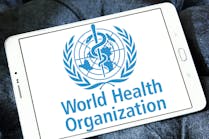FDA states efforts to make development of insulin products more efficient
“Access to affordable insulin can be a matter of life and death for Americans with diabetes. However, we are aware that the high cost of insulin raises serious concerns about the ability of many patients to access insulin products. This is an issue the FDA takes very seriously; therefore, we are announcing new draft guidance that is intended to help facilitate the development of, and improve patient access to, life-saving insulin products,” stated Acting Commissioner of Food and Drugs – U.S. Food and Drug Administration (FDA) ADM Brett P. Giroir, MD.
Dr. Giroir further stated, “The FDA is committed to continuing our efforts to help increase market competition among insulin products, which may potentially lower costs for patients and payors and increase access and product choice. This includes facilitating the development of safe and effective insulin products for the treatment of patients with Type 1 and Type 2 diabetes, including products that are biosimilar to, or interchangeable with, an approved insulin product.
The FDA issued a draft guidance for the industry, “Clinical Immunogenicity Considerations for Biosimilar and Interchangeable Insulin Products.” This draft guidance is intended to help guide efficient product development by clarifying what data and information may – or may not – be needed to support a demonstration of biosimilarity or interchangeability for a proposed insulin product, as defined in the draft guidance. The draft guidance also reflects consideration of stakeholder feedback provided at the FDA’s May 2019 public hearing on this topic at which stakeholders were invited to provide input on developing biosimilar and interchangeable insulin products.
Significantly, the FDA recommends that, under certain circumstances, a comparative clinical immunogenicity study would not be necessary for approval of certain proposed biosimilar and interchangeable insulin products. In general, immunogenicity studies investigate the presence of an immune response to the therapeutic protein and its clinical impact, which can influence whether the therapy will work well and be safe.
In the circumstances, the FDA generally expects the risk of clinical impact from immunogenicity to be minimal for certain proposed biosimilar and interchangeable insulin products. As such, while applications for biosimilar and interchangeable insulin products would be expected to include an immunogenicity assessment, that assessment could include a scientific justification of why a comparative clinical study to assess immunogenicity is not necessary for that particular proposed insulin product. The recommendations, which reflects extensive multidisciplinary evaluation of scientific considerations, may result in a more efficient development program that could ultimately bring biosimilar or interchangeable insulin products to the market more quickly.
On March 23, 2020, approved New Drug Applications (NDAs) for biological products will be deemed to be licenses for the biological products (i.e., approved Biologics License Applications (BLAs)) under section 351 of the Public Health Service Act. After an approved NDA for a biological product (such as an insulin product) is deemed to be an approved BLA, the product can be used as a “reference product” by an applicant seeking approval of a proposed biosimilar or interchangeable product. A reference product is the biological product, already approved by the FDA, against which a proposed biosimilar or interchangeable product is compared. This will enable, for the first time, submission of applications for products that are proposed as biosimilar to, or interchangeable with, the transition products. As such, the transition of insulin products from approved NDAs to deemed BLAs will open up those products to potential biosimilar and interchangeable competition. The availability of approved biosimilar and interchangeable insulin products is expected to increase access and reduce costs of insulin products, which millions of Americans take each day to maintain stable blood glucose.
The FDA is working now, in advance of the March 23, 2020 transition, to build a solid regulatory foundation for the review and approval of biosimilar and interchangeable insulin products. The FDA will begin accepting comments from the public on the draft guidance on Nov. 29.”




